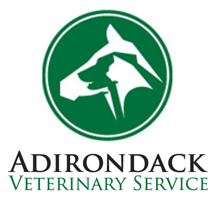A Guide to Vaccination for Your Cat
<p><em>To return to <a href=”/pet-care-articles/”>Pet Care Articles</a></em></p>
<p> </p>
<p>Currently, we recommend a vaccination program for your cat that reflects its age, lifestyle, potential for contact with other cats and risk of exposure to infectious disease. All cats are at risk of exposure to infectious diseases, even if they spend most of their time indoors. Some infectious diseases are life threatening, while others such as Rabies also pose a public health risk. Vaccination to prevent common infectious diseases is the first step in disease prevention. Prevention is ALWAYS more beneficial than attempting to treat disease once it occurs. A vaccine allows the cat’s natural immune system to aid in eliminating viral and bacterial infections. Prevention through vaccination is the most reliable and cost effective method of health care available to you.<img class=”alignright” src=”/wp-content/uploads/sites/86/2019/11/side-cat3.gif” alt=”house cat” ></p>
<p> </p>
<p>Vaccines contain killed or modified (weakened) forms of viruses and bacteria. They stimulate production of protective antibodies that neutralize the virus or bacteria if the cat is later exposed. Vaccines are best when used to protect against infectious disease, not to treat or cure existing diseases. Some vaccinations are called multivalent as they immunize against several diseases in one injection. We utilize many multivalent vaccines to minimize your inconvenience and discomfort to your cat.</p>
<p> </p>
<p>Since immunity to vaccination gradually declines over time periodic revaccination is recommended. That frequency depend on whether you cat has an all indoor, indoor/outdoor or all outdoor lifestyle, its age and risk of disease exposure. After a physical examination and evaluation of your cat’s individual circumstances we will determine the appropriate vaccination interval for your cat.</p>
<p> </p>
<p>Usually, the benefits of vaccination considerably outweigh the small risk of vaccine based adverse effects. Allergic reactions to vaccination are uncommon, but they do occur. Your cat may appear tired or lethargic after a vaccination. This is to be expected. Some of the adverse signs to watch for after your cat is vaccinated are difficulty breathing, facial swelling or persistent vomiting or diarrhea. On VERY rare occasions cats may develop tumors (fibrosarcomas) at the site of any injection, including vaccination.</p>
<p> </p>
<p>Typical vaccination program for kittens involve immunization for a group of respiratory viruses that include Feline Panleukopenia, Feline Viral Rhinotracheitis, Feline Calici Virus, Chlamydia psittaci and Rabies. An additional vaccine is available for Feline Leukemia if you kitten has exposure to other cats or wanders outdoors. Kitten vaccination can start as early as eight weeks of age and a dose is administered every three to four weeks until the kitten is sixteen weeks. Annual revaccination is recommended.</p>
<p> </p>
<p>For adult cats the diseases we recommend vaccination against are similar to the kitten program outlined above. If you cat has not been previously immunized we recommend two doses two to four weeks apart to bring their immune status up to par. After that annual revaccination is recommended.</p>
<p> </p>
<p>For Rabies vaccination your cat should get a single dose at three months of age or older. A repeat dose should be administered one year later. Repeat vaccination intervals will be determined by us according to state law.</p>
<p> </p>
<p><em>To return to <a href=”articles.htm”>Pet Care Articles</a></em></p>
